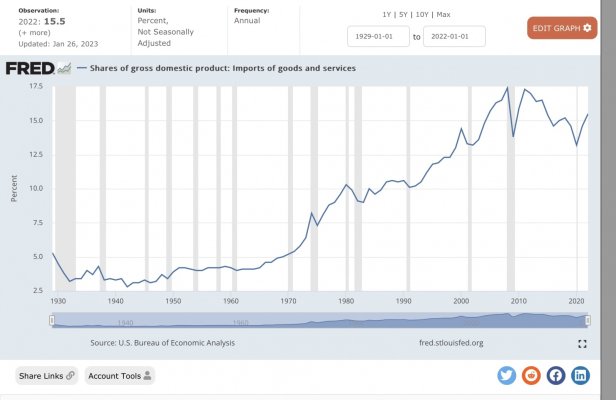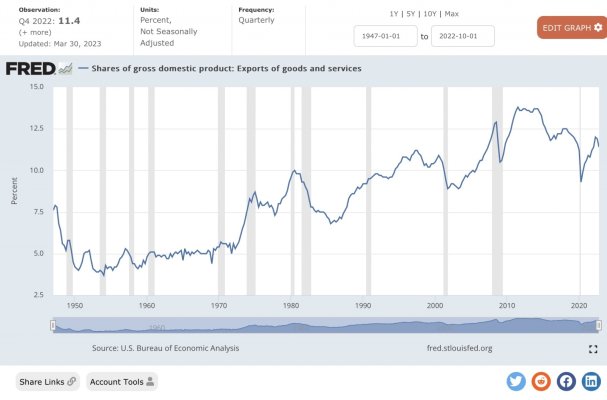Chuckanut
Give me a museum and I'll fill it. (Picasso) Give me a forum ...
It seems that America is making more things again. And one of the things we are producing a lot of is factories to make other things.
https://www.wsj.com/articles/american-manufacturing-factory-jobs-comeback-3ce0c52c?mod=hp_lead_pos7
Since the article is behind a paywall I will post a few quotes.
https://www.wsj.com/articles/american-manufacturing-factory-jobs-comeback-3ce0c52c?mod=hp_lead_pos7
Since the article is behind a paywall I will post a few quotes.
Production at U.S. factories rose last year, but few things were produced at a more furious pace than factories themselves.
Construction spending related to manufacturing reached $108 billion in 2022, Census Bureau data show, the highest annual total on record—more than was spent to build schools, healthcare centers or office buildings.
But last year U.S. production capacity showed its strongest growth since 2015 after pandemic-driven shortages and delays caused manufacturers to rethink their far-flung supply chains, said UBS industrials analyst Chris Snyder.
“Covid kind of pulled the covers off and showed everybody how much risk they were exposed to,” Mr. Snyder said.
The plant under construction belongs to Ultium Cells, a joint venture between GM and LG Energy Solution Ltd., and it aims to start producing EV batteries in late 2024.
Ultium said the factory will create more than 1,700 jobs. That’s not a huge number by local standards—the state government, Michigan State University and local hospitals each employ far more people—but Bob Trezise of the Lansing Economic Area Partnership said the suppliers that cluster around factories create a multiplier effect, making them worthy of public support.
Tennessee-based nutritional supplement company Vireo Systems Inc. imports one of its key ingredients—creatine, an energy-boosting natural compound popular with weightlifters and athletes—from China. After the Covid-19 pandemic interrupted the flow, Chief Executive Mark Faulkner decided to build a plant in Nebraska.
“We want to be masters of our own destiny,” he said.
California-based eyewear vendor Zenni Optical Inc. exclusively used its own Chinese manufacturing facilities during much of its 20-year existence. In May, the company opened its first U.S. plant near Columbus, Ohio, to better serve the Midwest and East Coast, where most of its sales originate.
Last edited:



